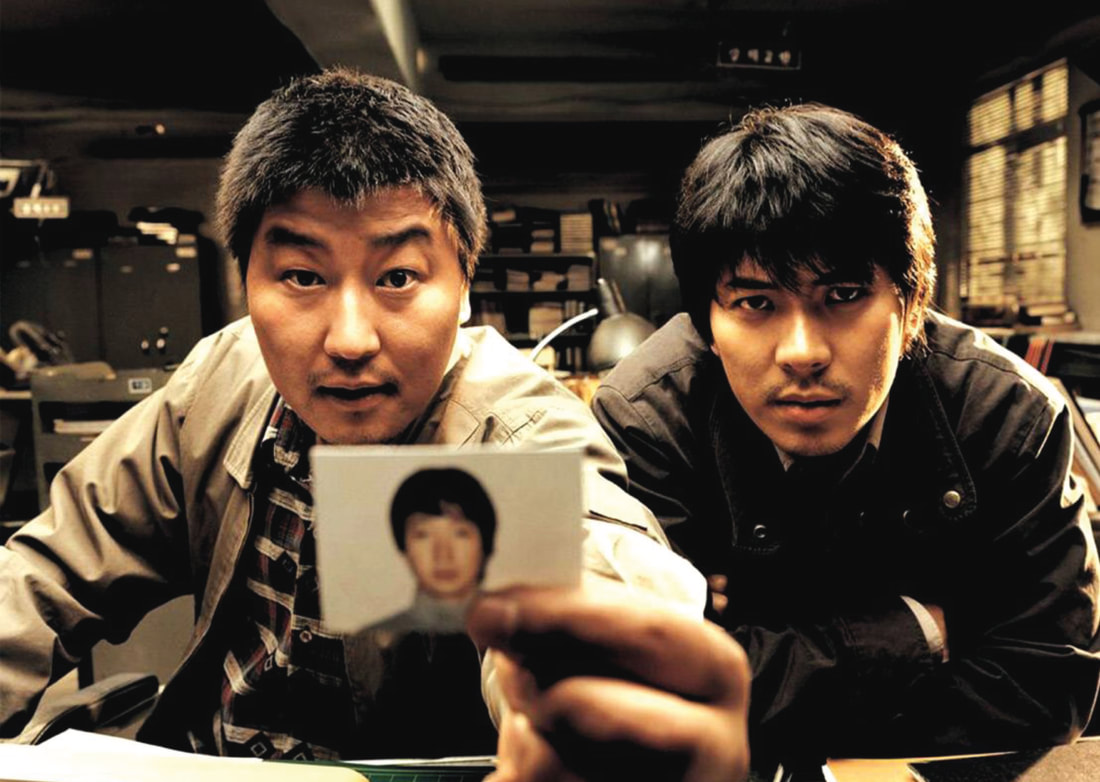ARTICLE / SHORT READCUT TO [wrath]
|
BY Calum Nicholson-Walker
|
As the years pass, the themes of MEMORIES OF MURDER (Bong Joon-ho 2003) become ever more pertinent. Based loosely on a series of real-life unsolved killings from the 1980s, the film sees bumbling local detective, Park Doo-man (Song Kang-ho), joined by the far more competent Seoul officer, Seo Tae-yoon (Kim Sang-kyung), investigating a series of murders of young women in the South Korean countryside.
Park’s investigation leads to the film’s first suspect, Baek Kwang-ho (Park No-shik), a mentally disabled young man. Park is one of many characters throughout the film whose method of coping with the unconscionable nature of the crimes is rage and violence. This fear of the unknown manifests during his investigation of Baek, as he struggles to understand or empathise with Baek’s atypical behaviour and mannerisms. This leads Park to craft an elaborate narrative in which Baek is the killer, demonising him for his mental condition, as well as physically abusing him during interrogation and even forging evidence. It is only when Seo uses intuition to deduce that Baek is innocent does Park relent, although the film does not paint Seo as a compassionate man, merely a rational one. The pair’s next major suspect is Park Hyeon-gyu (Park Hae-il), who they discover is responsible for requesting a specific song play on the radio, coinciding with each murder. What is notable here is that neither detective bother to ask why Hyeon-gyu does this; what is important to them is that it fits their narrative of a calculating killer. When empirical evidence proves Hyeon-gyu innocent, it is Seo’s turn to inflict violence upon the suspect. Despite Seo’s more rational nature, both detectives fall victim to believing themselves heroes of their own constructed narratives, culminating in them inflicting upon others the same brand of hypermasculine violence that claimed the lives of the victims. It is only at the very end of the film where any tangible piece of information on the killer’s identity is given. Park discovers that the culprit looked “ordinary”, prompting him to glare directly into the camera. It is here where the film lays bare its thesis statement: applying fantastical narratives to real life crime is to miss the point and the actual explanations behind such atrocities are far more mundane. Whoever was behind the crimes MEMORIES OF MURDER is based on, the meticulous plotting of whodunnits offers no recourse in understanding why they, or other such criminals, do what they do. Media reports of real-life high-profile murders revel in dramatising such events, placing emphasis on the culprits, their motivations and their actions. Giving context to such senseless violence may, on a surface level, provide some semblance of comfort. The crime fiction genre is as popular as it is because it is cathartic to witness fictional detectives solve the labyrinthian machinations of criminal masterminds, bringing them to justice with righteous fury. MEMORIES OF MURDER rejects this escapism, choosing to condemn the romanticised crime so often depicted in fiction. The “ordinary” looking culprit and Park’s final stare into the camera are messages that violence is mundane and societal issues beyond our control or comprehension are its root cause. more WRATH >>> |


